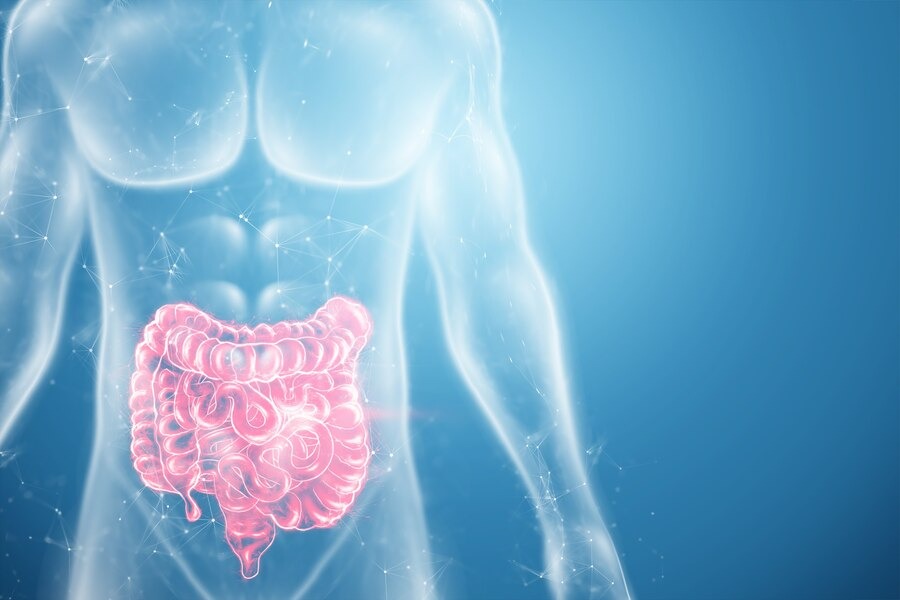
How does gut health affect the whole body? There's a solid reason why the idea of gut health has become so popular in recent years. The stomach, which is sometimes called the "second brain," is essential to our general health. The gut microbiome, which is made up of billions of bacteria, has a major role of gut microbiota in human health and in regulating several aspects of human health, such as immunity, digestion, and even mental health. This blog will examine the complex relationship between gut health and general wellbeing, focusing on the various ways that a healthy gut can affect our mental and physical well-being.
The digestive tract's resident bacteria, viruses, fungus, and other microbes make up the gut microbiome. These microbes have a 10:1 population advantage over human cells and significantly affect our health. Maintaining good health requires a diversified and well-balanced microbiome, as an imbalance can result in a number of health problems.
What are the why gut health is so important? There are many ways in which your gut bacteria can impact your health. The gut microbiota is essential for several processes, including:
There are several ways in which the condition of our digestive system can have a major influence on our physical health.
Digestive health and nutrition absorption depend on a healthy gut. An optimally balanced gut flora facilitates effective food digestion and nutrient absorption. On the other hand, an imbalance can cause digestive problems such diarrhea, constipation, bloating, and malabsorption of nutrients, which can lead to deficiencies and associated health complications.
The gut contains over 70% of the immune system. Through interactions with immune cells, the gut microbiota contributes to immune response regulation and homeostasis maintenance. The chance of developing autoimmune illnesses can be decreased and infections can be warded off with a healthy gut flora. Conversely, a dysbiosis of the microbiota may lead to long-term inflammation and compromised immunity.
Recent studies point to a gut-brain connection and between intestinal health & controlling weight. While some gut bacteria are connected to leanness, others are linked to an increased risk of obesity. The metabolism, energy balance, and fat storage are all impacted by the gut flora. Maintaining a healthy weight may be made simpler for people by encouraging intestinal health.
Research on the relationship between gut health and mental health is really interesting. The gut-brain axis is a neuronal, hormonal, and immunological communication mechanism that operates in both directions between the gut and the brain.
The vagus nerve, the enteric nervous system, and other signaling molecules including neurotransmitters are the pathways by which the gut and the brain communicate. The gut-brain axis is the name given to this communication system. Gastrointestinal problems can affect brain chemistry and play a role in mental health issues.
What is the link between gut health and happiness? Numerous mental health conditions have been related to an unbalanced gut microbiota, according to research, including:
Our gut microbiome's health can be influenced by a number of variables. Making decisions that support gut health can be made easier if we are aware of these aspects.
One of the biggest things influencing intestinal health is gut-brain connection diet. An array of different and healthful microbiomes can be fostered by a gut-brain connection diet high in fruits, vegetables, fiber, and fermented foods heal your gut. On the other hand, a diet heavy in sugar, processed foods, and bad fats can be detrimental to gut health.
Antibiotics are necessary for the gut-brain connection treatment of bacterial infections, but by eliminating helpful bacteria, they can also upset the delicate balance of the gut microbiome. Proton pump inhibitors (PPIs) and nonsteroidal anti-inflammatory medicines (NSAIDs) are two other drugs that may have an impact on gut health.
The following lifestyle choices can have an impact on gut health:
How to improve gut health for depression? Developing routines that support a diverse and well-balanced microbiome is essential to improving gut health. Here are a few doable actions to improve gut health:
What foods heal your gut?
Water consumption promotes the health of the gut lining and aids in the maintenance of a healthy digestive system.
Use stress-relieving methods like yoga, meditation, deep breathing exercises, mindfulness, and regular exercise to keep your gut-brain axis in good working order.
Try to get between 7-9 hours of good sleep every night to help your gut and general health.
Only take antibiotics when absolutely required and under a doctor's supervision. Talk to your doctor about the effects of other medications on intestinal health.
The subject of gut health research is developing quickly as fresh findings demonstrate the significant influence of the gut microbiome on general health. Subsequent investigations could reveal increasingly accurate methods of influencing the gut microbiome to achieve particular health goals, such customized gut-brain connection diet plans and focused probiotic gut-brain connection treatment.
How to improve gut health for depression? Research on gut microbiomes could eventually lead to individualized gut-brain connection diet regimens that take into account each person's particular gut microbiome. This could improve health outcomes by encouraging a diversified and well-balanced microbiota.
Although probiotics and prebiotics are now utilized to improve gut health, more focused and potent formulations may be created in the future. These gut-brain connection treatments may be created to alter the gut microbiota in order to address particular medical issues.
Related: How Our Digestive System Works and What Can Go Wrong
There is no denying the link between gut health and general wellbeing. A strong immune system, efficient weight control, better digestion, and enhanced mental health are all influenced by a healthy gut.
We can improve our general well-being by being aware of the variables that affect gut health and forming practices that support a diversified and well-balanced microbiome. The promise for enhancing health outcomes with gut health measures is still exciting as research reveals more intricacies of the gut microbiota. Making gut health a priority is essential to living a happier, healthier life.